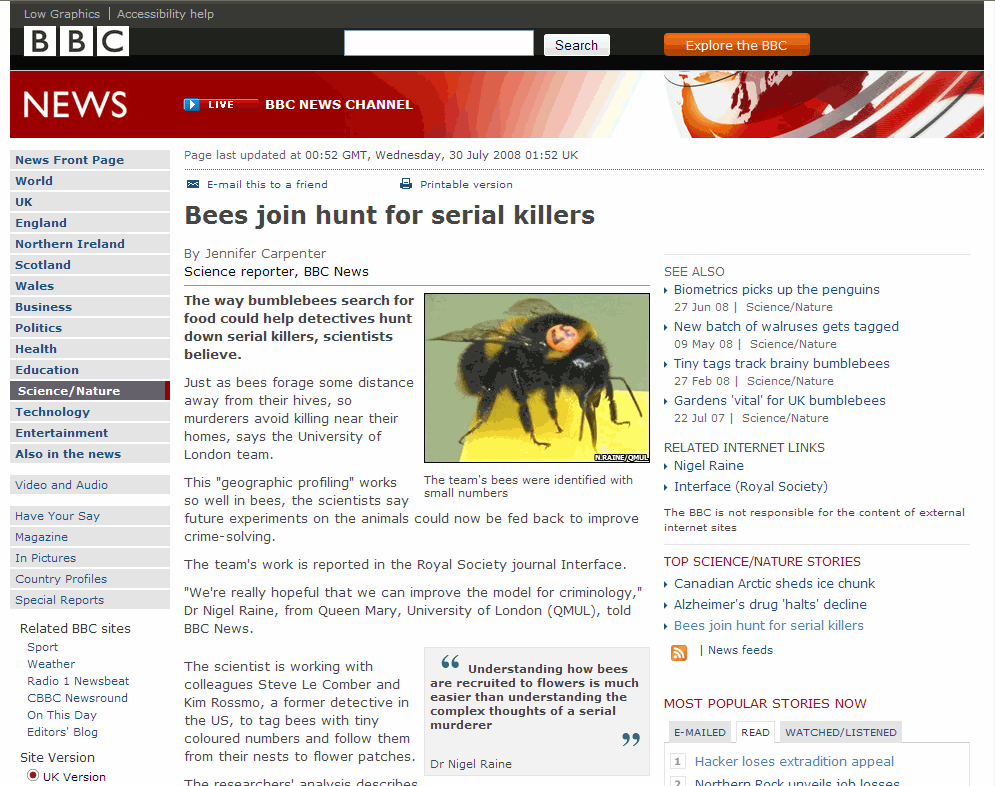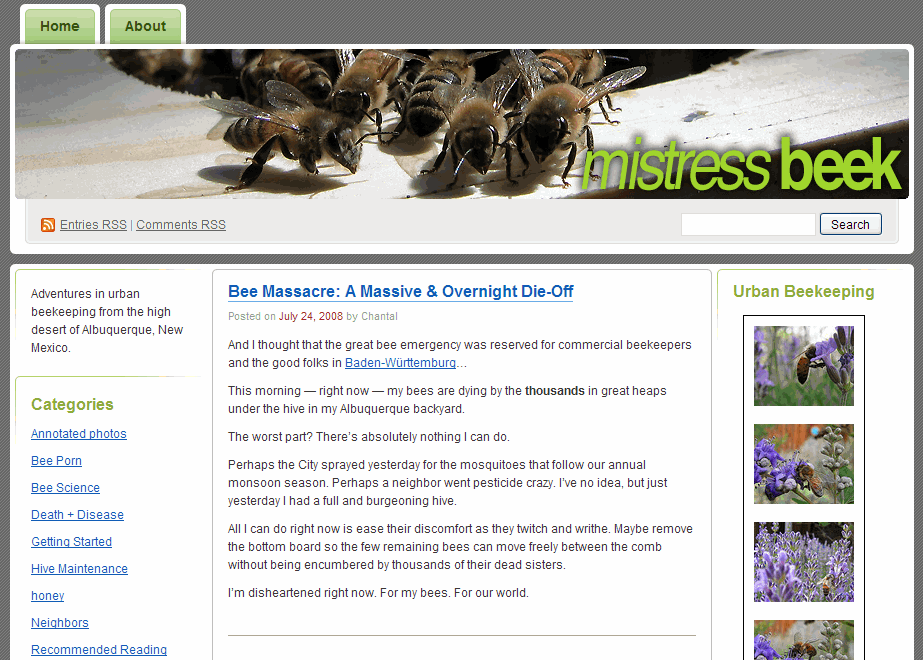
"Bees join hunt for serial killers," adds a tiny snippet to my pitiful store of knowledge:
"The researchers' analysis describes how bees create a "buffer zone" around their hive where they will not forage, to reduce the risk of predators and parasites locating the nest. It turns out that this pattern of behaviour is similar to the geographic profile of criminals stalking their victims."
Dr Nigel Raine, from Queen Mary College, University of London, came up with the theory, based on tagging and observing foraging patterns of bumble bees.
Dr Raine also states "Bees' pollination 'services' account for about one in three mouthfuls of food that we eat as humans. They pollinate a huge diversity of our fruit and vegetable crops."
Does he mean all bees, from bumble to honey, I wonder?




